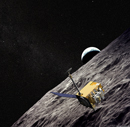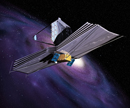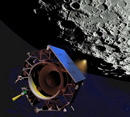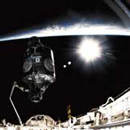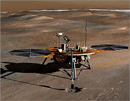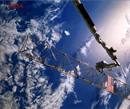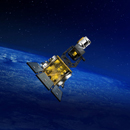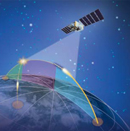| Abstract:
Software is rapidly becoming the universal implementation medium for functionality as well as the system integrator in complex space missions. As its complexity increases, its complete verification becomes infeasible, and other methods are needed to mitigate the effects of faults in its design, implementation, and operation. This workshop looks at using techniques developed by and borrowed from the vehicle and systems health management community in software to detect, isolate, and mitigate software faults.
Theme:
Software is increasingly becoming the main implementation tool for system functions, as well as systems integration. This leads to increases in complexity (and costs), such that it becomes exceedingly hard to exhaustively test and verify the software, such that latent faults could remain in the deployed systems.
In complex heterogeneous physical systems (like spacecraft and aircraft) such situations are addressed by ‘Integrated Systems Health Management’, where the health of (sub-) systems is continuously monitored, and if anomalies are detected their source is isolated, and appropriate mitigation action is taken. Software health management applies the same concepts to software, but in the context of the larger, physical system.
Goals:
The goal of the workshop is to bring together interested researchers from the community and interested ‘customers’ from the government and the industry to discuss: (1) the challenges of software health management, (2) the foundations and principles for software health management, (3) early, promising technical results in this area, (4) challenge problems from real systems, and (5) new research directions. The expected outcome of the workshop is a set of short papers and presentations that outline the state of the problems, the state of the art, the challenges, and interesting new research results and directions in the area.
Relevance:
Space missions require more on-board autonomy in managing faults, as communication delays, system complexity, and other factors push the ground-based control approach to its limits. As on-board software is quickly becoming perhaps the most complex ingredient of a space system, it is essential that its faults and their management become first-class activities in the design and implementation process. Cyber-physical systems, like spacecraft and aircraft, must be able to tolerate and manage faults not only in the physical, but also in the ‘cyber’ domain (i.e. software), and having techniques and technologies that address this problem is crucial.
This is the 2nd workshop on this topic. The first workshop was held in 2009 at SMC-IT with about 20 participants.
Organization:
Session Chair(s): Abhishek Dubey, Research Scientist, Vanderbilt University/ISIS, Nashville, TN, USA, dabhishe@isis.vanderbilt.edu
Gabor Karsai, Professor of EE/CS, Vanderbilt University/ISIS, Nashville, TN, USA, gabor@isis.vanderbilt.edu |






